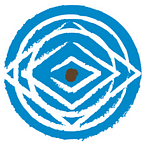How Can Educators Invest in Their Own Wellness?
The only constant for school leaders and teachers during the COVID-19 pandemic has been change: a stream of unexpected schedules, protocols, platforms, student behaviors, and parental concerns.
Amidst the change, how can educators invest in their own wellness and avoid burn out? First, let’s define what wellness is.
Most educators, in my experience, think that wellness is feeling happy or relaxed, which is understandable given the advertising for yoga services and bath salts from the $5 trillion global wellness industry. But medical professional generally define wellness differently. “True wellness,” says psychiatrist and author Lisa Damour, “is having the right emotion at the right time, and being able to cope with that emotion.” It’s natural to feel sad, depleted, and anxious during times of uncertainty. The question is: can we cope with these emotions in healthy ways?
When we pursue happiness, and don’t quite get there, we naturally feel disappointed. So rather than pursue happiness, we can instead pursue healthy coping strategies that allow us to build resilience and manage unpleasant emotions (and there will be plenty ahead). If we do this, happiness and peacefulness may well ensue. Here are four basic strategies educators can pursue on break and during the workweek:
- Quality social connections — One thing that is absolutely clear from my work with leaders and educators is that “isolation is fatal.” We all need to be in regular touch with key people who can support us in different ways — I call this a “Sounding Board.” Take a moment to write down the names of five to seven people who can be on your Sounding Board and support you as a confidant, creative brainstormer, accountability partner, role model, debate partner, wise mentor, motivator, or grounder. Now make a plan to meet with each person at least once every few months. Keep a journal on these conversations and observe your progress. Apart from a Sounding Board, are we spending quality time with our family and community of friends? And finally: Are there people with negative energy from whom we need to detach or disconnect altogether?
- Healthy distractions — During times of uncertainty, our brains needs a break from the fragmenting impacts of technology and frenetic schedules. Slowing down and allowing our brains to focus on one thing is deeply healing. How might we drop into a hours-long project as mundane as cleaning out our garage or doing yard work? What about creating a scrapbook, making art, playing the guitar, or pulling books from our bookshelf that we have not looked at in years? As we focus on happy distractions, how can we avoid negative pulls that reduce our coping capacities? Negative distractions include drinking alcohol to reduce stress, mindless scrolling on social media, binge Netflix or YouTube watching, etc.
- Self-care — We all know the basic and well-research buckets of self care: sleep, exercise, nutritious eating, and moments of mindfulness and gratitude. So why are they so hard? In the book The Power of Habit, author Charles Duhigg explores how quickly the human brain recognize recurring patterns in our lives and converts them into habits (good or bad). He also explores how a few “easy wins” early in the day can set us up for a pattern of bigger wins during the day. My morning ritual is 1) make my bed 2) drink a large glass of water 3) do plank for two minutes and 4) meditate for three minutes. Then, and only then, I get my coffee! This has been a life-changing ritual for me. What’s yours?
- Caring for others — “Research on altruism shows that there is no such thing,” Damour says. “When we take care of others, we take care of ourselves.” Who is a friend or neighbor we can reach out to today? Small acts of kindness during the day help us shift our attention to the world outside of self
A break from school, or even a weekend, is an opportunity for us to ground ourselves sufficiently so that we can stand up and look at the horizon. There is always an opportunity to ask:
“What have I learned about myself, my family, and my teaching during this time of uncertainty that I want to keep? What do I want to leave behind?”
To get your thinking started, watch this 4-minute Great Realisation.
During the ongoing pandemic, teachers AND parents continue to be front-line workers in the biggest disruption to school ever. Educators are heroes because they are guiding children through this difficult time. It’s time to celebrate ourselves, learn what we can from uncertainty, and move ahead with meaning.
